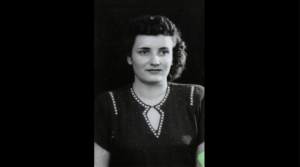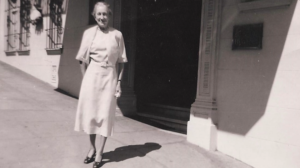Manning’s was a successful coffee and restaurant business that implemented best practices in business management and operated for 76 years. Edward and William Manning, the brothers who founded the company, adeptly applied sustainable business practices, and developed a robust marketing plan to establish and grow their company. Manning’s later managers continued the brothers’ approach to ensure that Manning’s had a hugely successful business run.
While they followed sustainable business practices, the Manning brothers and subsequent managers knew that the heart of any successful business is its people. Without qualified people working in a positive, ethical organizational culture, businesses generally cannot achieve sustainable business success.
Women’s Rights Were Curtailed During Manning’s Tenure
But at Manning’s, it wasn’t enough to hire qualified people. Manning’s wanted qualified women, as well as men. The company even went as far as to hire only women to work in Manning’s kitchens because the company’s managers felt women did superior work and were more capable of preparing Manning’s standardized recipes. Beginning in the 1930s, Manning’s even placed women in management positions.
At the time, this was highly unusual. When Manning’s opened their business in 1908, most companies hired only men. Women had few opportunities in the job market, and many women’s rights were curtailed. For example:
- Women did not have the right to vote throughout the United States until 1920.
- Until 1963, when the Equal Pay Act was passed, employers were not required to pay women the same wages as men for equal work.
- Before the Civil Rights Act was passed in 1964, employment discrimination against women was legal.
- Women generally could not hold credit cards in their own name or purchase property without a male cosigner until the Equal Credit Opportunity Act was passed in 1974.
Manning’s Regarded Women as Equals
At Manning’s, women were treated as equals and offered excellent job opportunities. Consider Gertrude Frederick’s story. She began her career as one of many women who entered the workforce during World War II to assume jobs left vacant by men while they fought overseas. Mrs. Frederick became a night supervisor in Vancouver, Washington shipyards, overseeing the work of six people.

Gertrude Frederick began working for Manning’s in the 1940s and was later promoted to a management position.
After the war ended, many women found themselves out of work when soldiers returned home and resumed their jobs. As one of these women, Mrs. Frederick lost her position in the shipyards. But she enjoyed holding a job and decided to seek further employment. Manning’s offered her a job in the company’s downtown Portland location, where she worked for over ten years. While there, she took advantage of Manning’s training program and also attended business school to further her education.
Manning’s managers noted Mrs. Frederick’s dedication and hard work. In 1960, they named her the personnel manager of Manning’s restaurant in Portland’s Lloyd Center, a new shopping mall hailed as the largest in the nation at that point. And, in 1960, becoming the personnel manager at such a high profile location was a significant accomplishment for a woman. At the time, if women worked, they typically were restricted to nurturing professions, such as teachers, nurses, stewardesses, and secretaries.
Manning’s Gave Rights to Women That Weren’t Enshrined in Law
At Manning’s, women had equal rights to men, which was demonstrated when Mrs. Frederick became pregnant. Manning’s enabled Mrs. Frederick to take paid time off for maternity leave, and when she returned weeks later, they welcomed her back to her management position. She earned the same salary she was paid before becoming a mother, even though Manning’s recognized that as a mother, she would need to adjust her hours and take more time off work.
Legally, at the time, Manning’s could have fired Mrs. Frederick for being pregnant, and even if they retained her as an employee, they didn’t have to support her pregnancy. Congress did not pass the Pregnancy Discrimination Act—which prohibits discrimination against pregnant employees and requires employers to hold positions for women while they are off work for maternity leave—until 1978, over fifteen years after Mrs. Frederick took paid maternity leave and returned to work at Manning’s.
Manning’s Gave Management Jobs to Women as Early as 1932
Mrs. Frederick was not the only woman manager at Manning’s, nor was she the first. In 1932, Manning’s hired Anne Ludden, a dietician from Lincoln, Nebraska, to develop the company’s Formula System of recipes. Using the principles of scientific management, Ms. Ludden developed a set of standardized recipes that became mandatory for all dishes cooked in Manning’s kitchens. Ms. Ludden’s Formula System and the rigorous process she used to implement the recipes set the foundation that enabled Manning’s to grow and become a major chain throughout the West Coast.

Anne Ludden’s development of Manning’s Formula System of recipes helped ensure the company’s success.
In 1939, Ruth Carlyle Miller, a student at the University of Washington who needed money to pay for college, became a counter clerk for one of Manning’s Seattle cafeterias. Impressed with her work, in 1943, Manning’s managers named Mrs. Miller the cafeteria’s personnel supervisor, and in 1946, the company promoted her to District Food Supervisor, a position overseeing operations at all Manning’s Washington cafeterias in Seattle, Tacoma, Everett, and Bellingham. Mrs. Miller stayed in this position until 1954, when she left Manning’s and started her own business.
Manning’s made it a priority to provide employees with an ethical organizational culture. This included giving rights and privileges to women, and even jobs in management, long before required by law and long before many other companies recognized the value of treating women as equals in the workplace.
In 2014, we asked Mrs. Frederick how she felt about working at Manning’s. She said, “The Mannings were grand people…They would come up from San Francisco (to Portland) and talk to all of us. They were interested in what you were doing…they were interested in us as human beings…I was very happy with my position. So, I think that makes a difference. And, I had a good time with it. It was very interesting, and I enjoyed it very much.”
Manning’s business model offers a stellar example of how to establish an ethical organizational culture that provides equal opportunities for women and makes all employees feel valued while promoting sustainable business success. And, the lessons of Manning’s are just as relevant in the twenty-first century as they were in the 1900s.
Our blogs, “Manning’s: A Case Study of Best Practices in Business Management” and “Ethics and Business? Using Sustainable Business Practices, Manning’s Demonstrated How to be Ethical AND Successful” provide more details. If you want to learn even more, please check out our book, “Manning’s: A Formula for Success.”
Copyright ©2023 Locke & Kant, LLC


